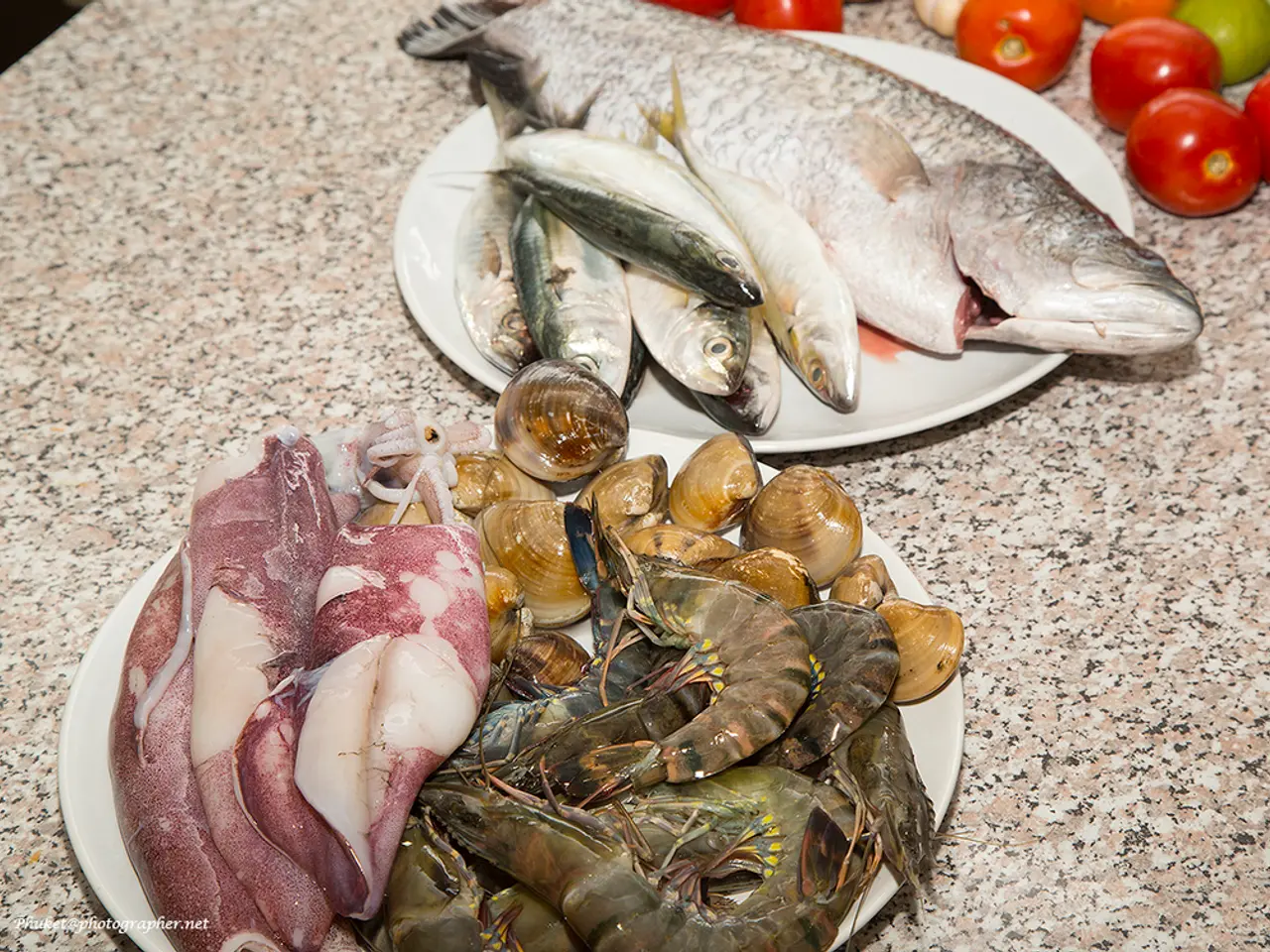Potential Dangers of Bringing Breaded Fish, Pasta Salad, and Tortilla to the Beach: A Health Risk!
Safe Summer Dining at the Beach: Food Safety Tips
As the summer season approaches and beach days become more frequent, it's essential to prioritise food safety to avoid foodborne illness. Nutrimán, a leading expert in nutrition, offers some valuable advice for enjoying a day at the beach without compromising your health.
Avoiding "Danger Zones"
One of the most crucial aspects of food safety is keeping perishable items out of the "danger zone" temperature range between 40°F and 140°F, where bacteria like Salmonella and Listeria rapidly multiply. It's recommended not to leave food out for more than 2 hours—or just 1 hour if the outdoor temperature is above 90°F.
Proper Storage
When it comes to storage, using coolers with ice packs is key to keeping raw meats and ready-to-eat foods cold. To prevent cross-contamination, it's essential to keep raw meats separate from other foods.
Cooking to Safe Internal Temperatures
Cooking foods to safe internal temperatures is another vital aspect of food safety, especially for poultry and ground meats.
Good Hygiene Practices
Practising good hygiene is equally important. Wash your hands with soap and warm water for at least 20 seconds before handling food, after touching raw meat, and after pet contact. Also, sanitize surfaces and utensils frequently.
Avoiding Soggy Salads and Melting Desserts
To ensure outdoor meals remain appetising and safe, it's best to avoid dishes prone to spoilage or messiness in the heat, such as soggy salads or melting desserts.
Managing Outdoor Cooking Challenges
Wind and uneven heat may affect cooking temperatures during outdoor meals. To maintain cleanliness, monitor cooking temperatures with a food thermometer and take precautions, as running water access may be limited.
Choosing the Right Foods
Some foods are better suited for beach days than others. Fruit without peeling, such as bananas, apples, and peaches, are recommended due to their skin protecting them. Canned foods are also a good choice because they don't require refrigeration.
However, dishes like omelettes, pasta, rice, and breaded chicken fillets should not be taken to the beach in sandwiches or without being in properly refrigerated containers to prevent bacterial growth. Particularly, breaded chicken fillets, due to their high water and fat content, should be kept in the fridge to prevent bacterial growth.
Maria Sanchez Palomo, a beachgoer, was advised to be careful about eating leftovers of breaded chicken fillets to avoid food poisoning. Pepa Romero, another beachgoer, usually takes breaded chicken fillets for the beach but was reminded to be cautious.
Fresh gazpacho can be a good beach food option, as the pasteurized variety is usually safe and lasts longer.
By following these guidelines—limiting food exposure time, separating raw and cooked foods, maintaining cleanliness, and proper cooking and storage—you can significantly reduce the risk of foodborne illness at summer outdoor meals while enjoying your dining experience safely.
[1] FoodSafety.gov. (2021). Summer Food Safety. [Online] Available at: https://www.foodsafety.gov/keep/charts/summer-chart.html
[2] Nutrimán. (2021). Safe Summer Outdoor Dining. [Online] Available at: https://www.nutriman.es/blog/safe-summer-outdoor-dining/
[3] Centers for Disease Control and Prevention. (2021). Food Safety: Keep Food Safe During a Picnic or Outdoor Event. [Online] Available at: https://www.cdc.gov/foodsafety/picnics/index.html
[4] Food Standards Agency. (2021). Picnics and Barbecues. [Online] Available at: https://www.food.gov.uk/guidance/food-safety-for-consumers/safe-food-handling/picnics-and-barbecues
- To maintain safety during summer beach dining, adopt healthy-diets and food-and-drink options that are less susceptible to spoilage, such as fruit without peeling and canned foods.2.Following good hygiene practices, like washing hands before handling food, after touching raw meat, and after pet contact, is equally important in food safety.
- Implementing science-based food safety strategies, such as proper storage, cooking to safe internal temperatures, and avoiding the "danger zones" for perishable items, can help prevent foodborne illness during outdoor meals.
- Incorporating therapies-and-treatments, like sanitizing surfaces and utensils frequently, can complement good hygiene practices and contribute to a healthy-lifestyle during beach days.




